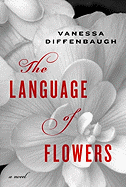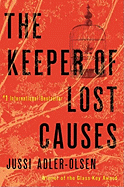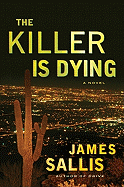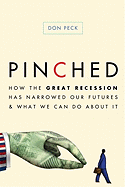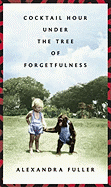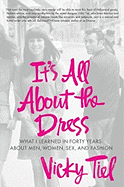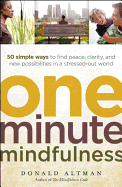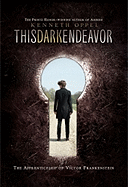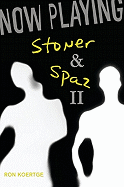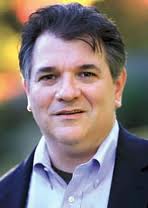 Neil Abramson spent most of his adult life either studying or practicing law, and he spent a good chunk of that life without any pets: "Not even a goldfish," he said, laughing. Yet Abramson has just published his first novel, Unsaid (Center Street Books)--and it's about how people communicate with each other and their beloved animals.
Neil Abramson spent most of his adult life either studying or practicing law, and he spent a good chunk of that life without any pets: "Not even a goldfish," he said, laughing. Yet Abramson has just published his first novel, Unsaid (Center Street Books)--and it's about how people communicate with each other and their beloved animals.
Speaking from his Hudson Valley home, which he shares with his wife, two children and numerous animals, Abramson acknowledged that there's a big juxtaposition between his old life and new life. "When I married my wife, who's a veterinarian, I went from living in a small, dark New York City apartment with a dead cactus to living in a house filled with dogs, cats, even a pig--all rescue animals!--and it was a huge change for me. It took me a while to adjust to having responsibilities for other lives, when I had never before had to be home taking care of something or somebody."
But Abramson's commitment to animal rights came long before his commitment to caring for any. "Right around law school, I got involved in doing animal stuff," he said, explaining that he'd always been interested in the legal notion of externality, meaning a person or entity who only has protection under the law because somebody else is caring for them in some capacity. "When I got involved in animal rights law in the late 1980s, a lot of this stuff was just coming to the forefront and it was an exciting time, with lots of arguments and decisions."
Abramson and his wife, Amy, are committed to animal rights in many aspects of their lives. "Once you get involved in factory farming and see the abuses that happen, it's hard to continue eating meat," he said. "Amy's been a vegetarian for her entire life, and I try to eat a mostly vegetarian diet, but sometimes eat wild fish. We each draw our lines in different places. We don't live the perfect, vegan, animal-free, no-leather life. We just do the best we can."
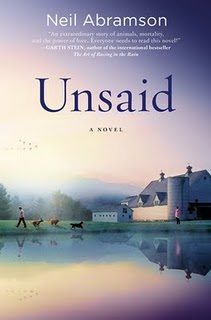 The impetus for Unsaid came out of a health scare that Amy had early on in the couple's relationship, before they married. "Amy was worried about what would happen to her animals if she were gone--and she was also worried about whether or not she'd made mistakes over the years in her role as a veterinarian, in choosing the precise moment when an animal will die. Veterinarians are supposed to heal and save, but so often they are called upon to end lives. What is the right time? What would be waiting for her after death if she had made mistakes?" Abramson recalled.
The impetus for Unsaid came out of a health scare that Amy had early on in the couple's relationship, before they married. "Amy was worried about what would happen to her animals if she were gone--and she was also worried about whether or not she'd made mistakes over the years in her role as a veterinarian, in choosing the precise moment when an animal will die. Veterinarians are supposed to heal and save, but so often they are called upon to end lives. What is the right time? What would be waiting for her after death if she had made mistakes?" Abramson recalled.
He decided that rather than try to speak his feelings about her fears, he would try to create a world that would express them. "I wanted to let her know that it's okay. As long as you care, as long as you feel for those creatures, as long as there's a meaning to their existence--you've done the right thing."
Abramson's novel is about Helena, a veterinarian who has died of breast cancer, but whose consciousness lives on and allows her to watch her husband, David, become an impassioned advocate for a chimpanzee's rights. "So much goes unsaid between husbands and wives," the author noted. "But even more can go unsaid between humans and animals. I don't really understand the science of how communication happens between our species, but I did a lot of reading, and I had a terrific science consultant for the book, Dr. Barbara J. King from the College of William and Mary."
The toughest message to communicate, for someone who has animals, is the proper time to let go. "One of the things I wanted to have Helena show that comes from Amy is our strange modern contradiction about vets. You've lived with this creature for years and been so emotional about it, but then you want a medical professional to take over this important decision and make it for you. It's a way of abdicating responsibility."
So what did the veterinarian in Neil Abramson's life think about Unsaid? "Amy's reaction after reading the manuscript was to cry for three days. Then she said 'Don't ever make me read that again.' She was very moved."
Other readers have been, too. "I'm told never to read my reviews, but I do, and I'm particularly interested in those from readers, not critics. One of them commented on the theology of the book and I thought, hmmm... I was not aware there was one! However, on further thought, I realized that there's a character who says the language of God is juxtaposition. The real evidence of a higher being is dissonance and difference."
Kind of like the difference between an old life and a new life? Abramson laughed. "Exactly. Exactly! I'm going to keep writing because it's all about communicating with other people, and showing them what I've learned. I write about what I care about." --Bethanne Patrick
Editor's Note: Neil Abramson has founded the Finally Home animal sanctuary organization for southern New York State; a portion of the proceeds from the sale of Unsaid is donated there.
Portrait of the Artist: Neil Abramson
 I've been thinking about that motto a lot in the past few weeks as the autumnal onslaught of fashion and interior magazines has begun. Even the catalogues display huge, unwieldy and (to me, at least) enticing stacks of books, next to desks, sofas, beds, tables and chairs. Oh, and even a few beautifully appointed bookcases. We all like looking at those, right? (Hence the popularity of the Bookshelf Porn site....)
I've been thinking about that motto a lot in the past few weeks as the autumnal onslaught of fashion and interior magazines has begun. Even the catalogues display huge, unwieldy and (to me, at least) enticing stacks of books, next to desks, sofas, beds, tables and chairs. Oh, and even a few beautifully appointed bookcases. We all like looking at those, right? (Hence the popularity of the Bookshelf Porn site....)


 Neil Abramson spent most of his adult life either studying or practicing law, and he spent a good chunk of that life without any pets: "Not even a goldfish," he said, laughing. Yet Abramson has just published his first novel, Unsaid (Center Street Books)--and it's about how people communicate with each other and their beloved animals.
Neil Abramson spent most of his adult life either studying or practicing law, and he spent a good chunk of that life without any pets: "Not even a goldfish," he said, laughing. Yet Abramson has just published his first novel, Unsaid (Center Street Books)--and it's about how people communicate with each other and their beloved animals. The impetus for Unsaid came out of a health scare that Amy had early on in the couple's relationship, before they married. "Amy was worried about what would happen to her animals if she were gone--and she was also worried about whether or not she'd made mistakes over the years in her role as a veterinarian, in choosing the precise moment when an animal will die. Veterinarians are supposed to heal and save, but so often they are called upon to end lives. What is the right time? What would be waiting for her after death if she had made mistakes?" Abramson recalled.
The impetus for Unsaid came out of a health scare that Amy had early on in the couple's relationship, before they married. "Amy was worried about what would happen to her animals if she were gone--and she was also worried about whether or not she'd made mistakes over the years in her role as a veterinarian, in choosing the precise moment when an animal will die. Veterinarians are supposed to heal and save, but so often they are called upon to end lives. What is the right time? What would be waiting for her after death if she had made mistakes?" Abramson recalled. Yossarian Slept Here: When Joseph Heller Was Dad, the Apthorp Was Home, and Life Was a Catch-22 (reviewed below) by Erica Heller is a new memoir by a daughter about (at least in part) her famous author father.
Yossarian Slept Here: When Joseph Heller Was Dad, the Apthorp Was Home, and Life Was a Catch-22 (reviewed below) by Erica Heller is a new memoir by a daughter about (at least in part) her famous author father.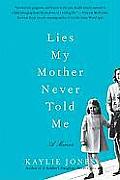 Lies My Mother Never Told Me by Kaylie Jones, about her father James Jones (From Here to Eternity, The Thin Red Line) deals with fame and alcoholism, making the PW review that called it "absolutely addictive" intensely ironic.
Lies My Mother Never Told Me by Kaylie Jones, about her father James Jones (From Here to Eternity, The Thin Red Line) deals with fame and alcoholism, making the PW review that called it "absolutely addictive" intensely ironic.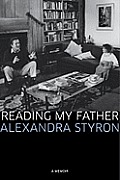 Reading My Father by Alexandra Styron pays particular attention not to William Styron's considerable body of work, but to the lifelong depression that affected everyone around him and his ability to continue writing.
Reading My Father by Alexandra Styron pays particular attention not to William Styron's considerable body of work, but to the lifelong depression that affected everyone around him and his ability to continue writing. The Minneapolis Star Tribune reported that the
The Minneapolis Star Tribune reported that the  Celebrities who are also readers have a slight advantage over the rest of us, in that they, "often making tens of thousands of dollars for just showing up somewhere, have no such financial restraints and may indulge themselves with those epic home libraries the rest of us can only dream about." Presented as evidence by AccreditedOnlineColleges.com are "
Celebrities who are also readers have a slight advantage over the rest of us, in that they, "often making tens of thousands of dollars for just showing up somewhere, have no such financial restraints and may indulge themselves with those epic home libraries the rest of us can only dream about." Presented as evidence by AccreditedOnlineColleges.com are " In a photo slide show, the Daily Beast made its case for Columbia Heights as "
In a photo slide show, the Daily Beast made its case for Columbia Heights as "